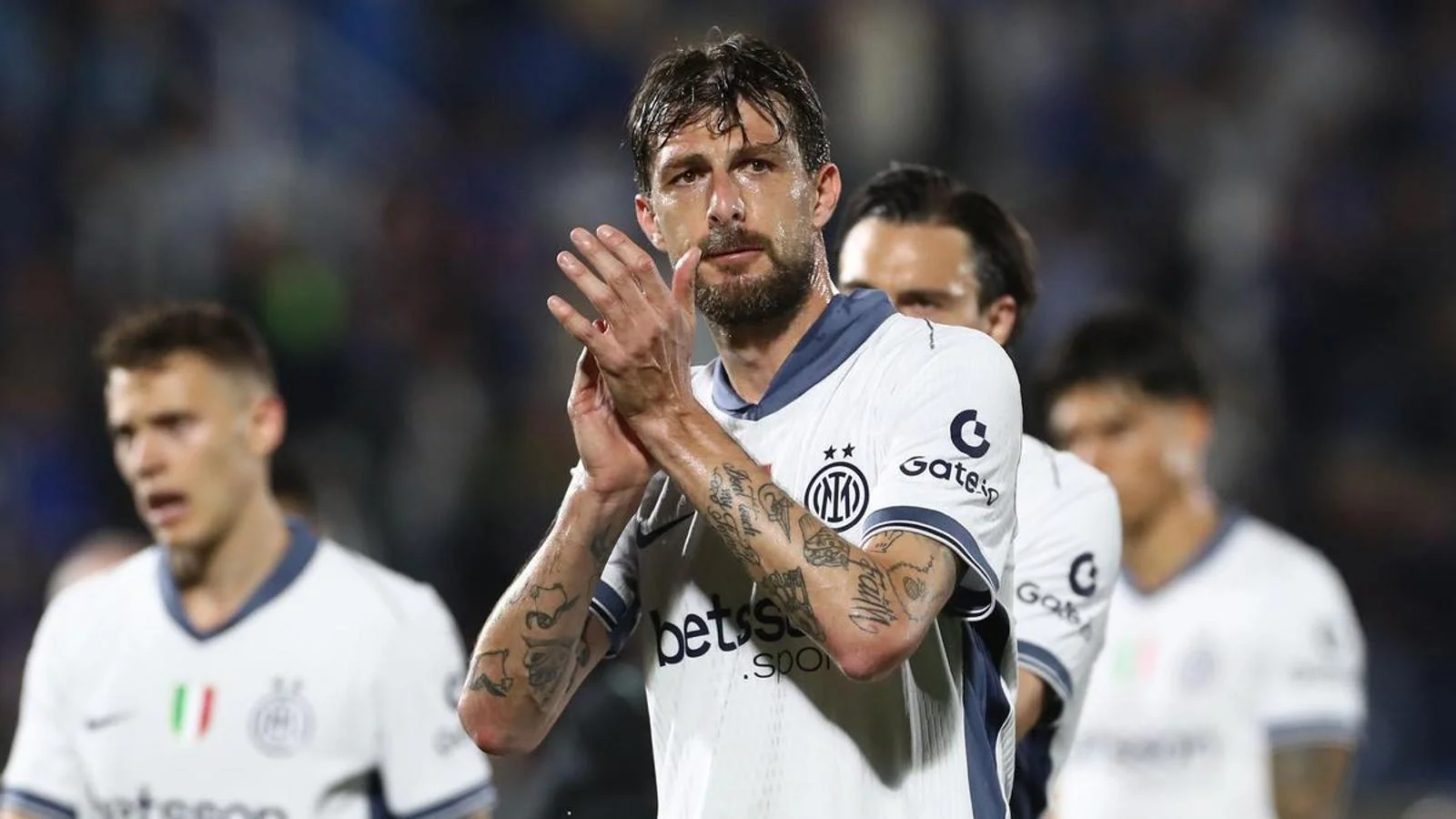Francesco Acerbi – A True Warrior On and Off the Pitch
Francesco Acerbi’s battle with cancer stands as one of football’s most inspiring stories of courage, determination, and ultimate triumph. When the Italian defender received his diagnosis in 2013, few could have predicted that this life-threatening challenge would transform him into not only a better player, but also a beacon of hope for countless others facing similar battles.
First Signs and Diagnosis
Medical Examination During Transfer
The discovery of Acerbi’s cancer came during what should have been one of the most exciting periods of his career. In 2013, while negotiating a potential transfer, routine medical examinations revealed concerning abnormalities that required immediate attention. These standard medical checks, which are mandatory for all professional football transfers, potentially saved his life through early detection.
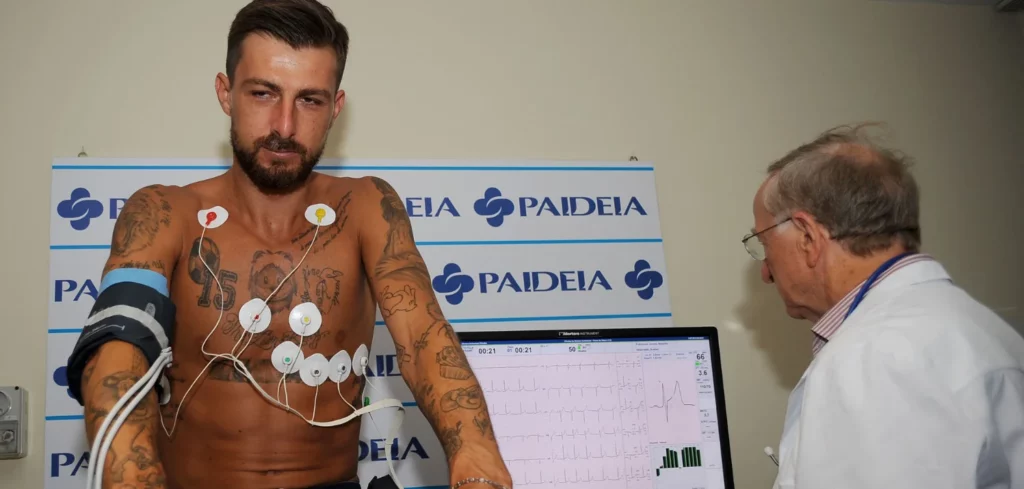
The initial medical screening involved comprehensive blood tests, physical examinations, and imaging studies. Team doctors noticed irregularities in his test results that warranted further investigation. What began as a routine procedure quickly transformed into a race against time to determine the extent of the medical issue.
Medical professionals approached the situation with urgency while maintaining discretion about the potential severity. The transfer negotiations were immediately suspended as Acerbi’s health became the absolute priority. This period marked the beginning of uncertainty that would test his mental strength and reshape his perspective on life priorities.
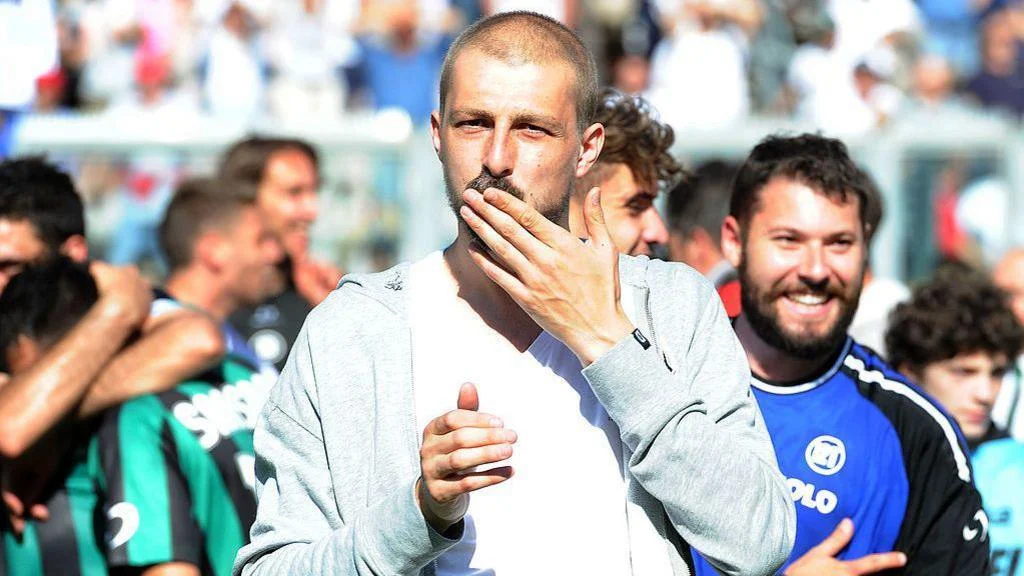
Cancer Confirmation in 2013
The official diagnosis of testicular cancer came as a devastating shock to Acerbi, his family, and the football community. Oncologists explained the nature of his condition, treatment options, and the challenging journey ahead. The news arrived during his prime playing years, threatening both his career aspirations and personal well-being.
Testicular cancer, while serious, typically responds well to treatment when detected early. Medical specialists outlined an aggressive treatment plan involving surgery and chemotherapy cycles. The prognosis remained positive, but the treatment would require months of intensive medical intervention and recovery time.
The diagnosis forced Acerbi to confront mortality and reassess life priorities in ways most young athletes never experience. The psychological impact proved as challenging as the physical aspects of the disease. His world suddenly shifted from football pitches to hospital rooms, from tactical discussions to medical consultations.
Public Announcement and Reaction
Acerbi’s decision to publicly announce his cancer diagnosis demonstrated remarkable courage and transparency. The football community rallied around him with unprecedented support from players, coaches, fans, and media representatives. Messages of encouragement poured in from across the sporting world, creating a network of emotional support.
The announcement helped reduce stigma surrounding cancer while educating young athletes about the importance of regular medical examinations. Acerbi’s openness about his condition inspired others to prioritize health monitoring and seek medical attention for concerning symptoms. His platform as a professional athlete amplified the message’s reach and impact.
Media coverage remained respectful and supportive throughout his treatment period. Football organizations, including his club and the Italian Football Federation, expressed unwavering support for his recovery journey. The collective response demonstrated the football community’s capacity for compassion during difficult circumstances.
The Fight for Health
Chemotherapy and Physical Toll
The chemotherapy treatment regimen proved physically and emotionally demanding for Acerbi. The powerful medications designed to eliminate cancer cells also caused significant side effects including fatigue, nausea, hair loss, and reduced immune function. Each treatment cycle required careful monitoring and adjustment based on his body’s response.
Medical teams developed individualized protocols to manage side effects while maintaining treatment effectiveness. Nutritionists worked to optimize his diet during treatment, ensuring adequate nutrition despite reduced appetite and digestive challenges. Physical therapists helped maintain muscle function and cardiovascular fitness within safe parameters.
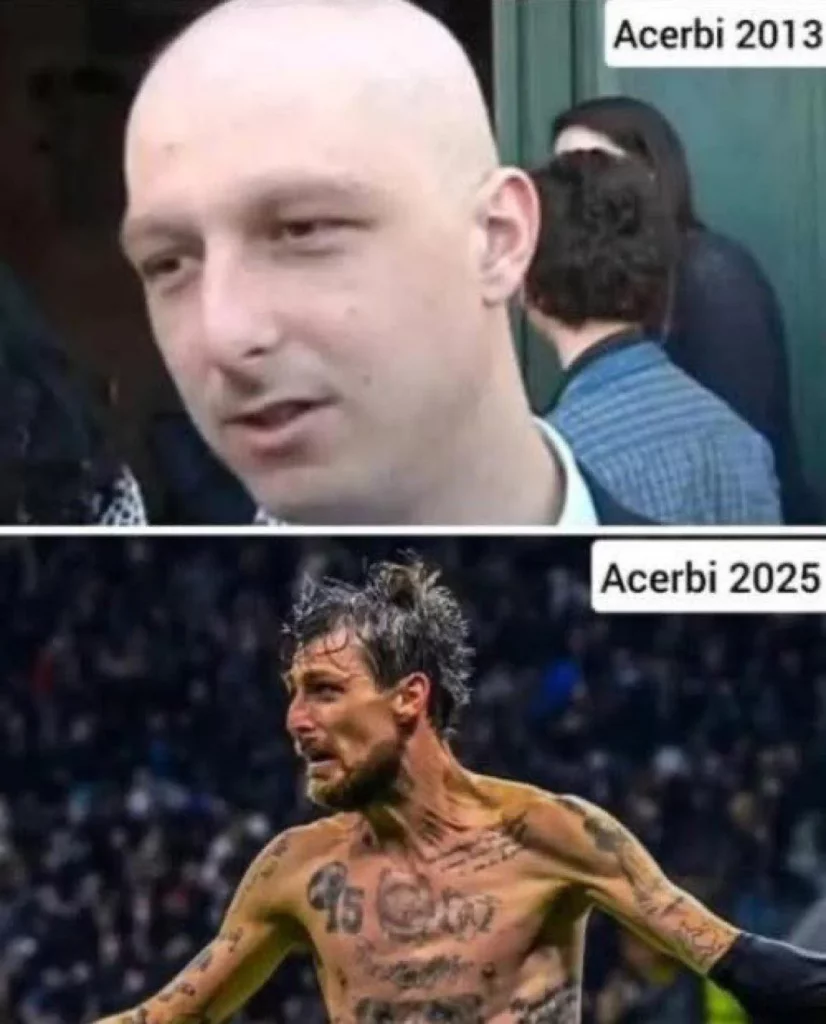
The treatment schedule disrupted normal daily routines and required significant lifestyle adjustments. Acerbi learned to manage energy levels, rest requirements, and physical limitations while maintaining hope for complete recovery. The experience taught him patience and appreciation for health that most people take for granted.
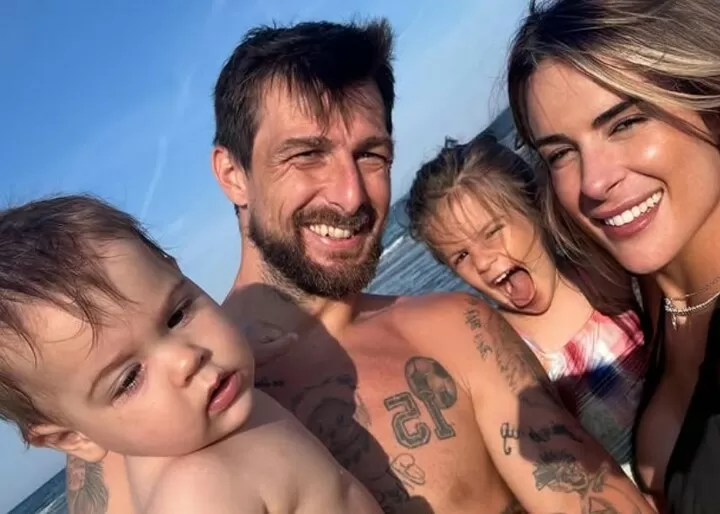
Family, Fans, and Mental Support
Acerbi’s family provided unwavering emotional support throughout his cancer battle. His parents, siblings, and close friends created a protective environment that prioritized his physical and mental well-being. Their presence during medical appointments and treatment sessions provided comfort during the most challenging moments.
Fan support extended beyond traditional boundaries as supporters from rival clubs sent messages of encouragement and solidarity. Social media platforms became channels for positive communication, with thousands of fans sharing stories of their own cancer experiences and recovery journeys. This collective support network proved invaluable for maintaining mental strength.
Professional counseling services helped Acerbi process the emotional aspects of his diagnosis and treatment. Sports psychologists provided specialized support for athletes facing career-threatening health challenges. The mental health component of his treatment proved as crucial as the medical interventions for achieving complete recovery.
Staying Connected to Football
Despite his treatment commitments, Acerbi maintained connections to football through various means. He attended training sessions when physically able, observing teammates and staying mentally engaged with tactical developments. Coaches included him in team meetings and strategic discussions, preserving his sense of belonging within the squad.
Video analysis sessions allowed him to continue learning about the game while managing treatment fatigue. He studied opposing teams, analyzed defensive techniques, and maintained tactical sharpness for his eventual return. This mental engagement with football provided purpose and motivation during difficult treatment periods.
Teammates regularly visited him during treatment, sharing team news and maintaining social connections. These interactions helped normalize his experience while providing emotional support from people who understood his professional aspirations. The bond with fellow players strengthened during this vulnerable period.
Returning to the Pitch
Timeline of Recovery
Acerbi’s recovery timeline followed careful medical protocols designed to ensure complete healing before returning to competitive football. Initial recovery phases focused on regaining basic fitness and strength after chemotherapy completion. Medical clearances required multiple examinations and test results confirming cancer-free status.
The rehabilitation process began slowly with light cardiovascular exercise and basic strength training. Fitness specialists developed progressive programs that gradually increased intensity while monitoring his body’s response. Each phase required medical approval before advancing to more demanding physical activities.
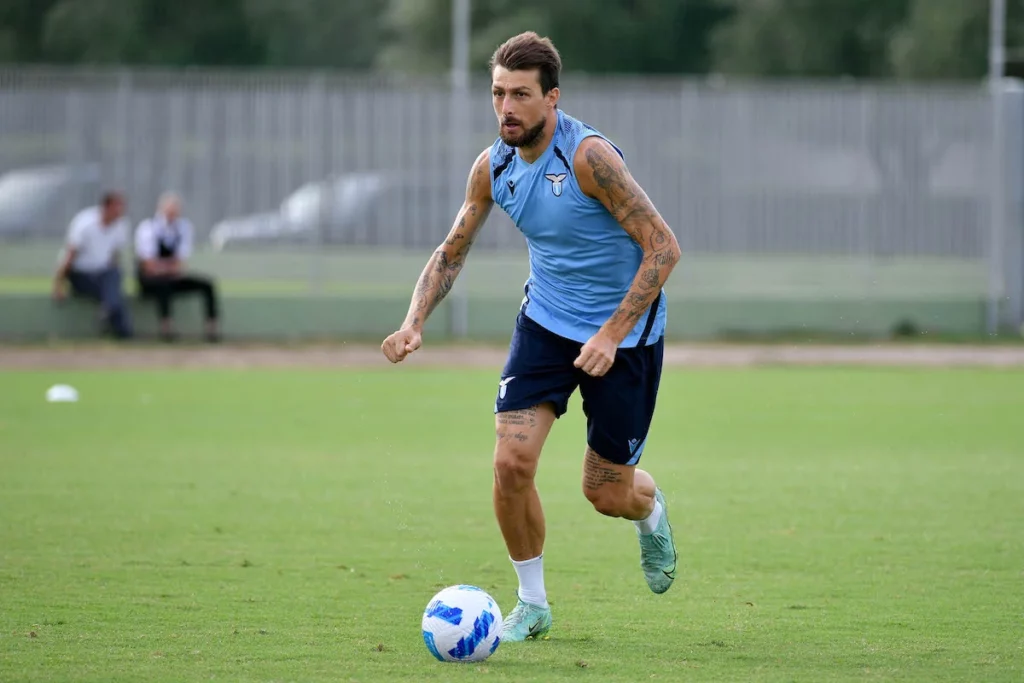
Six months after completing treatment, medical professionals cleared Acerbi for full football training. The timeline reflected both the effectiveness of his treatment and his dedication to proper recovery protocols. His patience during the rehabilitation process proved crucial for achieving complete physical restoration.
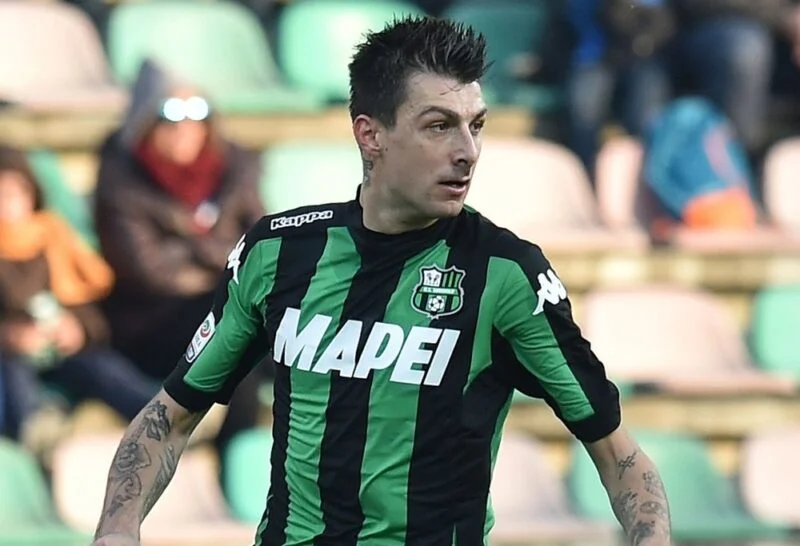
Emotional First Match Back
Acerbi’s return to competitive football created one of the most emotional moments in recent sports history. The atmosphere at his first match back was electric, with fans from both teams acknowledging his courage and determination. Pre-match ceremonies recognized his journey and celebrated his successful recovery.
Walking onto the pitch represented the culmination of months of uncertainty, pain, and hope. The emotional weight of the moment was visible as Acerbi fought back tears while acknowledging the crowd’s support. His teammates surrounded him with encouragement, understanding the significance of this achievement.
The match itself became secondary to the larger story of human resilience and determination. Every touch of the ball, every defensive intervention, and every moment on the pitch represented victory over adversity. The standing ovation he received demonstrated sport’s power to unite people around inspiring stories.
Long-Term Impact on His Playing Style
The cancer experience fundamentally changed Acerbi’s approach to football and life. His playing style evolved to incorporate greater mental toughness, improved decision-making under pressure, and enhanced leadership qualities. The perspective gained through his health battle translated into more mature performances on the pitch.
His communication skills improved significantly as he learned to articulate thoughts and emotions more effectively. This development enhanced his ability to organize defensive lines and provide tactical guidance to teammates. The leadership qualities developed during his recovery became valuable assets for his teams.
Physical preparation took on new importance as Acerbi developed heightened awareness of his body and health status. His dedication to fitness, nutrition, and recovery protocols exceeded previous standards. The experience taught him to maximize every opportunity and never take his playing career for granted.
Role Model for Athletes and Patients
Awareness Campaigns
Acerbi transformed his personal experience into powerful advocacy for cancer awareness and early detection. He partnered with medical organizations to promote regular health screenings among athletes and the general population. His campaigns emphasized that cancer can affect anyone, regardless of age or fitness level.
Educational initiatives included visits to hospitals, schools, and community centers where he shared his story and encouraged others to prioritize health monitoring. These presentations combined personal narrative with medical information, making complex health topics accessible to diverse audiences.
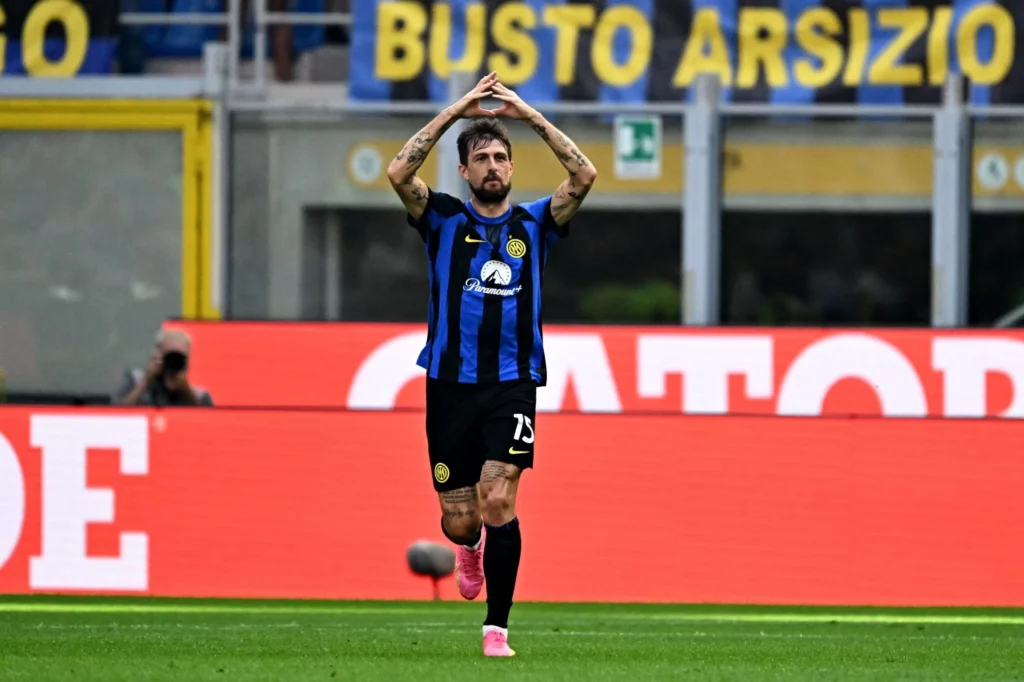
His involvement with cancer research organizations helped raise funds and awareness for continued medical advancement. Acerbi’s platform as a successful athlete amplified the reach of these important messages, potentially saving lives through increased awareness and early detection practices.
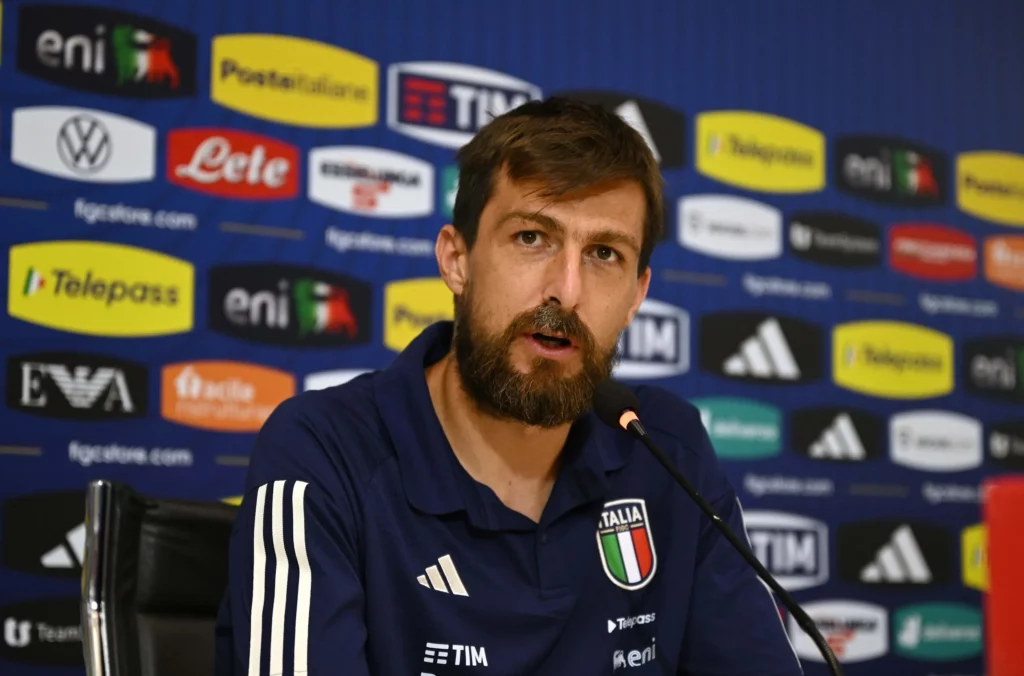
Public Speeches and Interviews
Media appearances became powerful platforms for sharing his recovery message and inspiring others facing similar challenges. Acerbi’s articulate and honest communication style resonated with audiences beyond the football community. His interviews balanced vulnerability with strength, showing that seeking help demonstrates courage rather than weakness.
Speaking engagements at medical conferences allowed him to address healthcare professionals about the patient experience. His insights helped medical teams understand the emotional and psychological aspects of cancer treatment from a patient’s perspective. These contributions improved patient care protocols and support systems.
Television documentaries and written articles preserved his story for future generations while reaching global audiences. The multimedia approach ensured his message would continue inspiring people long after his playing career ends. His willingness to share intimate details of his journey helped others feel less alone in their battles.
Supporting Others with Illness
Personal interactions with cancer patients became a regular part of Acerbi’s life as he visited hospitals and treatment centers. These meetings provided hope and encouragement to people facing similar diagnoses. His presence demonstrated that cancer survival was possible and that life could continue to be fulfilling after treatment.
He established relationships with cancer support organizations, contributing time and resources to assist other patients and families. His involvement extended beyond symbolic gestures to meaningful participation in programs designed to improve patient experiences and outcomes.
The mentorship role extended to fellow athletes facing health challenges, as Acerbi became a resource for professional sports figures dealing with serious medical issues. His guidance helped others navigate the complex intersection of athletic careers and health crises.
Health, Lifestyle & Resilience Today
Diet, Fitness and Routine
Acerbi’s current lifestyle reflects lessons learned during his cancer battle and recovery. His nutrition program emphasizes foods that support immune system function and overall health maintenance. Professional nutritionists help optimize his diet for both athletic performance and long-term health benefits.
Training routines incorporate elements specifically designed to maintain the physical and mental resilience developed during his recovery. Recovery protocols receive enhanced attention, with adequate rest and stress management prioritized alongside physical conditioning. The comprehensive approach addresses all aspects of health and wellness.
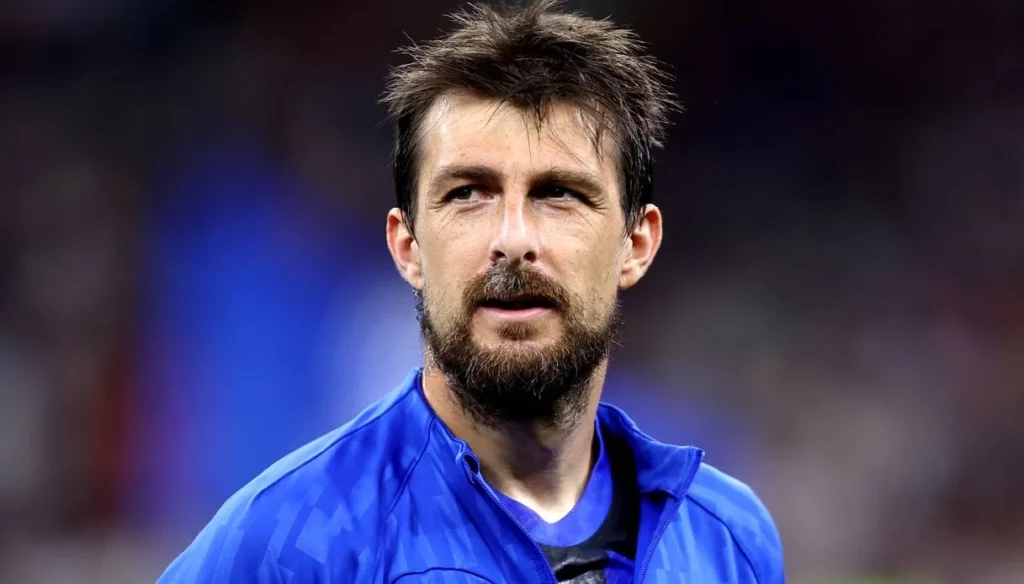
Sleep patterns, hydration levels, and stress management techniques form integral components of his daily routine. These lifestyle modifications reflect a mature understanding of factors that contribute to sustained health and performance. His approach serves as a model for other athletes seeking optimal wellness practices.
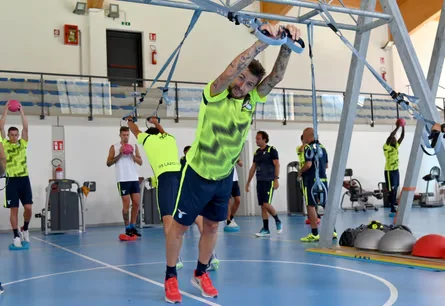
Regular Checkups and Monitoring
Ongoing medical surveillance remains a critical component of Acerbi’s health management strategy. Regular cancer screenings and comprehensive health evaluations provide early detection capabilities for any potential issues. The monitoring schedule exceeds standard recommendations, reflecting both medical necessity and personal commitment to health maintenance.
Medical teams continue tracking various health markers to ensure his continued well-being. Advanced diagnostic technologies provide detailed information about his physical status, allowing for prompt intervention if any concerns arise. The proactive approach demonstrates the importance of continued vigilance after cancer treatment.
These regular checkups also serve educational purposes, as medical professionals study long-term recovery patterns in athletes who have overcome cancer. Acerbi’s participation in research studies contributes to improved understanding of cancer survivorship and athletic performance relationships.
Advocacy in Italian Sports Culture
Acerbi’s influence on Italian sports culture extends beyond his individual story to broader conversations about athlete health and wellness. His advocacy has encouraged sports organizations to implement more comprehensive health monitoring programs for professional athletes. These systematic changes benefit current and future generations of sports figures.
Educational programs in Italian football academies now include health awareness components inspired by Acerbi’s experience. Young players learn about the importance of regular medical examinations and recognizing potential health warning signs. This preventive approach could identify health issues before they become serious problems.
His story has become part of Italian sports folklore, representing the values of perseverance, courage, and community support that define the nation’s sporting culture. The narrative demonstrates how individual challenges can inspire collective improvements in health awareness and support systems.
FAQs
Francesco Acerbi was diagnosed with testicular cancer in 2013. This type of cancer typically responds well to treatment when detected early, which was fortunate in his case.
Acerbi was away from competitive football for approximately 6 months while undergoing treatment and recovery. He returned to full training and competition after receiving medical clearance.
Rather than diminishing his abilities, the experience seemed to enhance Acerbi’s mental strength and leadership qualities. Many observers noted improved maturity and communication skills in his post-recovery performances.
Acerbi has partnered with various cancer research organizations and medical institutions to promote early detection and health awareness. He regularly speaks at hospitals, schools, and medical conferences.
Yes, Acerbi has remained cancer-free since completing his treatment in 2014. He maintains regular medical monitoring as part of his ongoing health management strategy.
